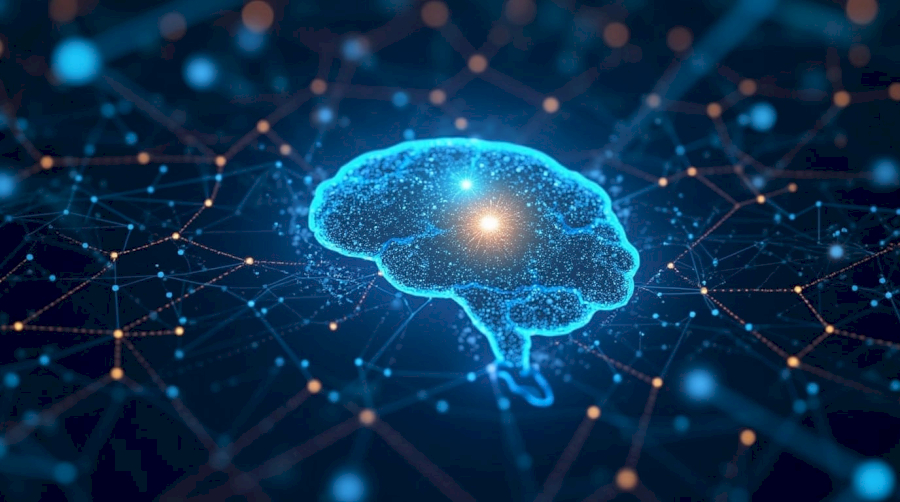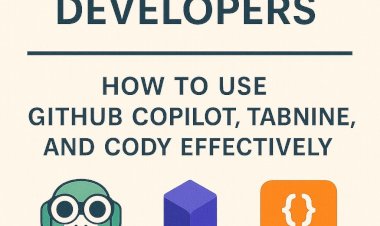The AI Revolution in Software Development: Transforming How We Build Tomorrow's Applications
25 May 2025
Artificial intelligence is fundamentally reshaping the landscape of software development, moving from a futuristic concept to an essential toolkit that developers rely on daily. This transformation extends far beyond simple code completion, touching every aspect of the development lifecycle and redefining what it means to be a software engineer in the modern era.
The New Developer Workflow
Traditional software development followed a predictable pattern: requirements gathering, design, coding, testing, and deployment. AI has introduced powerful new capabilities at each stage. Developers now work alongside intelligent assistants that can generate boilerplate code, suggest optimizations, identify potential bugs before they occur, and even write comprehensive test suites. This partnership between human creativity and machine efficiency is creating unprecedented productivity gains.
The most visible change is in code generation. Large language models trained on vast repositories of code can now produce functional programs from natural language descriptions. A developer might describe a REST API endpoint in plain English and receive working code that handles authentication, data validation, and error responses. This capability dramatically reduces the time spent on routine programming tasks, allowing developers to focus on higher-level architecture and problem-solving.
Enhanced Code Quality and Security
AI-powered tools are revolutionizing code review and quality assurance. Static analysis tools enhanced with machine learning can detect complex patterns that traditional linters miss, identifying potential security vulnerabilities, performance bottlenecks, and maintainability issues. These systems learn from millions of code examples to understand what constitutes good software engineering practices and can provide contextual suggestions for improvement.
Security, in particular, has benefited enormously from AI integration. Modern development environments can scan code in real-time for common vulnerabilities like SQL injection, cross-site scripting, and buffer overflows. They can also suggest secure coding patterns and automatically generate security-focused test cases, helping developers build more robust applications from the ground up.
Automated Testing and Debugging
The testing phase of development has been transformed by intelligent automation. AI can generate comprehensive test suites by analyzing code structure and identifying edge cases that human testers might miss. These systems can create unit tests, integration tests, and even user interface tests by understanding the intended behavior of the application.
Debugging, traditionally one of the most time-consuming aspects of development, has become more efficient through AI assistance. Intelligent debugging tools can analyze error logs, stack traces, and code patterns to suggest likely causes of bugs and potential fixes. Some advanced systems can even automatically generate patches for common types of errors, though human oversight remains crucial for complex issues.
The Democratization of Development
Perhaps the most significant impact of AI in software development is its democratizing effect. No-code and low-code platforms powered by AI are enabling people without traditional programming backgrounds to create sophisticated applications. These platforms use natural language processing to translate business requirements into functional software, breaking down barriers that previously limited software creation to trained programmers.
This democratization is creating new opportunities for domain experts to directly implement their ideas without waiting for technical translation. A marketing professional can build customer analytics dashboards, or a scientist can create data visualization tools without needing to learn complex programming languages.
Challenges and Considerations
The integration of AI into software development is not without challenges. Code generated by AI systems requires careful review, as these tools can produce syntactically correct but logically flawed code. There are concerns about over-reliance on AI assistance potentially atrophying fundamental programming skills, particularly among new developers who might become dependent on automated solutions.
Intellectual property and licensing issues also present complications. When AI generates code based on training data that includes copyrighted material, questions arise about ownership and liability. Organizations must carefully consider these legal implications when adopting AI development tools.
Quality control remains paramount. While AI can accelerate development, it cannot replace human judgment in architectural decisions, user experience design, and business logic implementation. The most successful development teams are those that leverage AI as a powerful assistant while maintaining human oversight and creativity.
The Future Landscape
Looking ahead, the integration of AI in software development will likely deepen. We can expect to see more sophisticated AI agents capable of handling entire features or modules with minimal human guidance. Natural language programming interfaces may become more common, allowing developers to describe complex systems in conversational terms and have them automatically implemented.
The role of software developers is evolving rather than disappearing. Future developers will likely spend more time on system design, user experience, and complex problem-solving while delegating routine coding tasks to AI assistants. This shift requires developers to cultivate skills in AI tool utilization, prompt engineering, and quality assurance of AI-generated code.
The companies and developers who successfully navigate this transition will be those who embrace AI as a collaborative partner rather than viewing it as a replacement. The future of software development lies not in human versus machine, but in the powerful synergy between human creativity and artificial intelligence efficiency.
As we stand at this inflection point, one thing is clear: AI is not just changing how we write code, but fundamentally transforming what software development can achieve. The applications and systems we'll build in the coming years will be more sophisticated, more reliable, and created faster than ever before, thanks to this remarkable partnership between human ingenuity and artificial intelligence.
